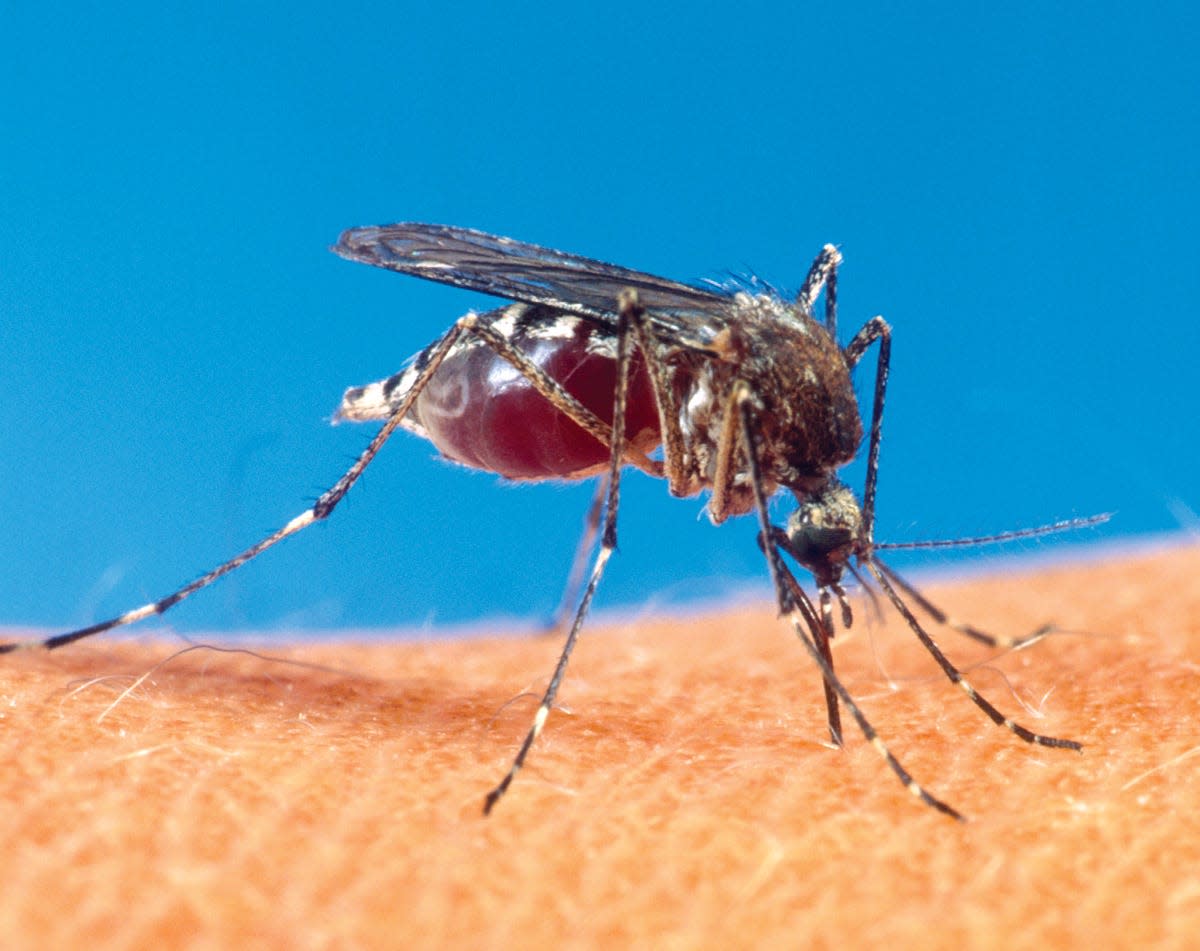Mosquitoes are a big problem in northern Wisconsin right now. Here's why.

Swarms of mosquitoes are coming out to ruin some summer fun. Experts are getting reports of high mosquito activity, especially the northern parts of Wisconsin.
Typically, mosquitoes are most active in Wisconsin from May to September, but they can remain alive until temperatures dip below freezing. Here's how to protect yourself from these blood-sucking bugs.
Why are mosquitoes so bad in Wisconsin right now?
Mosquito activity is still ramping up across the state with numbers typically climbing until August and September. Experts at the Wisconsin Department of Health Services are hearing of high mosquito levels in northern parts of the state, said Rebecca Osborn, a vectorborne disease epidemiologist.
Mosquitoes generally love protection from wind, and to be in tall grass or wooded areas. That's why mosquitoes aren't as active near larger lakes or in open spaces, but the second you step into the woods, you're ambushed by them.
Activity could be higher this year because of warmer temperatures, which result in more months during which the insects can thrive, Osborn said.
Insect experts also say that Wisconsin's bat population, who are predators of mosquitoes, has plummeted since 2014 because of a spread of fungal disease. Small bats can catch up to 1,000 or more small insects in a single hour; without a thriving bat population, mosquito activity can increase.
How do you treat a mosquito bite?
When you get a mosquito bite, the insect ingests your blood and injects saliva into your skin, which leaves you feeling itchy. Here's how to treat the bite:
Wash the area with soap and water
Apply an ice pack for 10 minutes to reduce swelling and itching. You can reapply the ice pack as needed.
You can also apply a mixture of baking soda and water to reduce the itching. Combine 1 tablespoon baking soda with enough water to create a paste. Apply the paste to the bite and wait 10 minutes before washing it off.
Use an over-the-counter anti-itch or antihistamine cream to help relieve itching.
If you have mosquito bites, don't scratch at them because they can become infected. An infected bite can be red warm or include a red streak spreading outward. Make sure to contact your healthcare provider if your symptoms get worse.
What diseases do mosquitoes spread?
According to the Department of Health Services, the top diseases spread by mosquitoes are:
Common symptoms for mosquito related illness are similar to the flu-like features such as fever, muscle aches and fatigue. Illness can also lead to some neurological symptoms and in the most severe cases result in death.
There are vaccines for some mosquito related illness for horses, but not for humans.
What's the best bug spray to repel mosquitoes?
Use an insect repellent on your skin and clothes that contains:
20-30% DEET
10-20% picaridin
10-20% IR3535
30-40% oil of lemon eucalyptus
Parents should apply bug spray to their children and be sure to avoid hands, eyes and mouth. Do not use it on children under two months of age, and do not use products containing lemon eucalyptus on children under three years old. Make sure to wash the repellent off your skin after coming inside.
You can also apply permethrin, a pesticide that kills mosquitoes, to your clothes and gear. Do not apply it directly to your skin.
RELATED: Heading outside this summer? Here's what you need to know about bug repellents
Here's how you can avoid mosquito bites altogether
To avoid mosquito bites, wear long-sleeved shirts, pants, socks and shoes outdoors. You can also wear thicker clothing so it's more difficult for mosquitoes to bite through your clothes. Make sure to apply repellent to any bare skin, and if you're heading into areas with lots of mosquitoes, wear a head net.
Get rid of any nearby mosquito attractions
To get rid of mosquitoes in your yard, drain anything in your yard that allows water to stand, which is where mosquitoes breed.
To eliminate any standing water in your yard remember to:
Cover outdoor trash and recycling cans with tight-fitting lids
Drain any dishes under your flowerpots every few days
Clean up leaves and yard debris from low-lying areas and gutters
Replace the water in your birdbaths, fountains and your pets' water dishes at least twice a week
RELATED: Ticks are thriving this year in Wisconsin. Here's how you can protect yourself.
Contact Alex Groth at agroth@gannett.com. Follow her on Twitter at @grothalexandria.
Our subscribers make this reporting possible. Please consider supporting local journalism by subscribing to the Journal Sentinel at jsonline.com/deal.
DOWNLOAD THE APP: Get the latest news, sports and more
This article originally appeared on Milwaukee Journal Sentinel: Here's how to protect yourself from mosquitoes in Wisconsin

